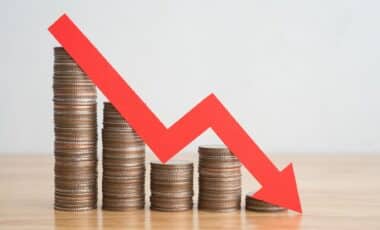The UK government has confirmed that individuals receiving Personal Independence Payment (PIP), Adult Disability Payment (ADP), or Disability Living Allowance (DLA) will be eligible for a one-off £255 payment later this year. This annual winter heating support payment is designed to help vulnerable individuals manage higher energy costs during the colder months, particularly those whose disabilities or health conditions require additional heating or energy use.
The one-off payment will increase by 1.7% for the 2025/26 winter season, reflecting changes in inflation. While this incremental rise aims to offset rising living costs, many advocacy groups argue that it does not go far enough, especially as energy prices remain well above pre-crisis levels. With household budgets still stretched, some campaigners are calling for further government intervention to provide more comprehensive support for those who rely on benefits to cover essential costs.
Who Will Receive the £255 Payment?
The one-off heating payment will be issued to individuals who are already receiving certain disability benefits, specifically:
- Personal Independence Payment (PIP)
- Adult Disability Payment (ADP)
- Disability Living Allowance (DLA)
Unlike some other government support schemes, recipients will not need to apply for this payment. It will be automatically deposited into their bank accounts, ensuring that those who qualify receive financial assistance without additional paperwork or delays.
This payment is especially significant for people with long-term health conditions and disabilities, as many individuals in these groups face higher-than-average energy costs. Some require specialist medical equipment that needs to remain powered, while others have mobility challenges that limit their ability to stay warm through physical activity. Additionally, individuals with chronic illnesses or certain disabilities may need to heat their homes for longer periods than the general population to avoid worsening health conditions.
Winter Energy Support: Is £255 Enough?
While the £255 payment will provide some relief, many campaigners believe that it does not go far enough to tackle the ongoing energy affordability crisis. Over the past few years, energy prices have remained stubbornly high, and while wholesale energy costs have stabilised compared to the peaks seen in 2022, many households continue to struggle with expensive gas and electricity bills.
Disability rights groups have pointed out that energy costs for disabled individuals can be significantly higher due to medical and mobility needs. Heating requirements, medical devices, and other essential home adjustments mean that some households face bills far above the national average, making a one-off payment of £255 seem insufficient in the face of long-term financial strain.
Many advocacy groups are now pushing for additional measures to support disabled individuals during the winter months, including:
- Expanding eligibility criteria to include more people on disability and means-tested benefits.
- Increasing the one-off payment amount to better reflect the reality of energy costs.
- Introducing further winter energy grants for those facing financial hardship.
Despite the concerns, the government maintains that the £255 increase aligns with inflation and will provide critical support to disabled households during the coldest months. However, as the cost-of-living crisis continues, many will be watching closely to see if additional support is offered in future budgets.
When Will the Payment Be Made?
The government has not yet confirmed the exact payment date, but it is expected to be made before the peak winter months to ensure claimants receive the financial support when they need it most. In previous years, similar payments were issued between November and February, suggesting a similar timeframe for this year’s distribution.
Those who receive PIP, ADP, or DLA are encouraged to ensure their bank details are up to date with the Department for Work and Pensions (DWP) or Social Security Scotland to prevent any delays in receiving the payment. Anyone who experiences issues or does not receive the payment despite being eligible will likely have the option to contact the relevant government department for assistance once the official payment schedule is announced.
While this payment offers some short-term relief, it remains part of a wider debate over whether the government is doing enough to support disabled individuals facing disproportionately high energy costs. With winter energy bills still a significant concern for many households, pressure on the government to introduce stronger and more permanent solutions is expected to continue.









